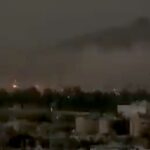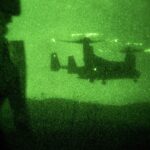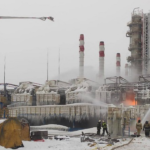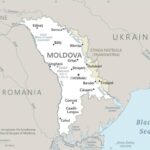NATO’s decision-making body, the North Atlantic Council (NAC), will meet on Friday (28 February 2020), following a request by Turkey to hold consultations under Article 4 of the Washington Treaty on the situation in Syria. Under article 4 of the Treaty, any Ally can request consultations whenever, in the opinion of any of them, their territorial integrity, political independence or security is threatened.
WHAT HAPPENED?
A pro-government attack killed 33 Turkish soldiers in northwestern Syria last night. The attack took place in the village of Balyun (Idlib province), where the Turkish military had diverted to hold the frontline against the advancing pro-government forces (e.g. Syrian Arab Army, Iranian-backed Shiite militias and the Russian Aerospace Forces and advisors). Initially, only 9 casualties were reported, but the death toll spiked overnight to over 30 KIA. Turkey was only able to evacuate the wounded by land, as Russia reportedly refused to deconflict the airspace for Turkish helicopters.
WHO CONDUCTED THE ATTACK?
Ankara identified “regime forces” as being behind the mass-casualty attack, although there is reason to believe that the Russian Aerospace Forces (RuAF) bombed the Turkish military position. Ever since Turkey demonstrated a willingness to use MANPADS (Man-portable air-defense systems) in Idlib earlier this month, when it shot down two Mi-17 Syrian Arab Air Force (SyAAF) helicopters, Damascus grounded its helicopter fleet. This left Russia as the only force engaged in air operations over Idlib. While some of the few SyAAF fighter jets are still air-worthy (one MIG-23 “Flogger” was recently spotted airborne) they have limited capability to conduct precision airstrikes at night (e.g. small to no inventory of thermal/ infrared-targeting pods).
The Kremlin, however, claims the Turkish forces were hit by Syrian artillery shelling and that Turkey had not informed Russia in advance about their recent movements. Moscow’s’ claims are difficult to believe as both the Russian and Turkish command centers are keeping tabs 24/7 on each other through drones, satellite imagery, and other ISR (Intelligence, Surveillance, and Reconnaissance) assets. Russia has also been aware of the recent Turkish troop surge in southern Idlib and even targeted a Turkish military convoy in the area several days ago. Russia is also using small unmanned aerial systems to direct Syrian artillery on Turkish and opposition forces.
Clearest video so far that shows heavy Russian Air Forces strikes in a close proximity of Turkish Military convoy inside the village of Al-Bara in Syria. pic.twitter.com/Zt40ho4fL2
— Aldin 🇧🇦 (@aldin_ww) February 23, 2020
Turkish Defense Minister Hulusi Akar said that the Turkish re-positioning has been pre-coordinated with Russia and that even ambulances came under fire during the medical evacuation.
TURKISH RETALIATION
The Turkish military released a video showing that it executed a series of UAV (unmanned aerial vehicles) strikes against pro-government positions and vehicles in retaliation for the attack.
YENİ GÖRÜNTÜLER ❗
Türk ordusu sabaha kadar rejim hedeflerini ağır şekilde vurdu.#İdlip pic.twitter.com/hqzbFzFfxu
— TVNET (@tvnet) February 28, 2020
CAN TURKEY INVOKE ARTICLE 5?
Almost certainly not. As Article 6 stipulates: “the purpose of Article 5, an armed attack on one or more of the Parties is deemed to include an armed attack:
- on the territory of any of the Parties in Europe or North America, on the Algerian Departments of France 2, on the territory of Turkey or the Islands under the jurisdiction of any of the Parties in the North Atlantic area north of the Tropic of Cancer;
- on the forces, vessels, or aircraft of any of the Parties, when in or over these territories or any other area in Europe in which occupation forces of any of the Parties were stationed on the date when the Treaty entered into force or the Mediterranean Sea or the North Atlantic area north of the Tropic of Cancer.”
Article 5 is the cornerstone of NATO and states that an attack on one member of NATO is an attack on all of its members. Article 5 cannot be used to draw collective military support for extraterritorial operations or wars-by-proxy.
WHAT WILL ARTICLE 4 BRING?
Article 4 meetings usually result in political support from the other 28 members and possibly a largely defensive military support package. Ankara has previously used Article 4 at least three times to request NATO augment Turkey’s air defense capabilities. This time, however, the Turkish government will likely pressure its allies to provide more support. President Erdogan has recently threatened to allow the millions of refugees that were forced to the border by the pro-government offensive, to flee for Europe.
NW Syria: A sea of tents in one of the massive camps for displaced people near the Turkish border
A million people already in camps like this. But huge shortage of shelters for all those who fled recently. Humanitarian crisis growing by the day
Pictures from Atmeh yesterday pic.twitter.com/mygrdEqddi
— Mark Cutts (@MarkCutts) February 23, 2020
FOR CONTEXT
The pro-government camp and the Turkish-backed opposition groups (National Front for Liberation/NFL) are both on the offensive in Idlib. With Turkish artillery and limited air support, the NFL has recaptured Nayrab and Saraqib on the M5 highway- positions that it lost less than a month ago (see Facebook post).
After capturing the M5 highway, the pro-government camp reshuffled its forces to south-central Idlib province, where it aims to dislodge the Opposition forces from the M4 highway section linking Latakia province to Saraqib city.
- Russia Bombs Maternity Ward & Children’s Hospital in Mariupol As Part of Siege - 10 March 2022
- T-Intell’s OSINT Training Marks One Year Anniversary - 18 November 2021
- IS-K Never Left the Battlefield - 27 August 2021









